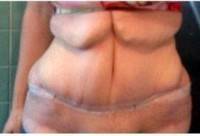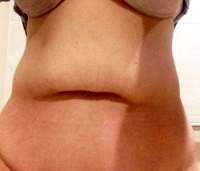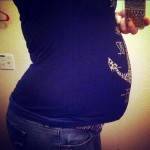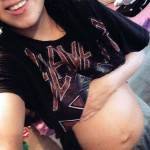Baby after tummy tuck
Abdominoplasty and Babies
The ideal is to wait and have a baby before you get a tummy tuck, but if you want to get pregnant after you had this kind of procedure done, you need to be at least 12 months post op. (Daniel Camacho Melo, MD, Mexico Plastic Surgeon)
Tumme tuck before pregnancy
In general, it’s wise to wait until you’re done with all of your pregnancies.
If you’re not sure, or you may want to get pregnant in the distant future, you could consider having a tummy tuck prior to pregnancy as long as you realize that you may require a revision.
Having a tummy tuck prior to pregnancy is not dangerous for you or the baby. However, one never knows how the skin and abdominal wall will respond to the pregnancy.
Some women will get lucky and the skin and abdominal wall bounce right back, and others are not so lucky.
You just never know. So, if you’re not willing to undergo a revision, you’re best bet is to wait until you’re done having children. (Elan B. Singer, MD, Norwalk Plastic Surgeon)
Tummy tuck and considering another baby
I would recommend you wait on the tummy tuck until after you are all done with pregnancies, otherwise you could create new laxity and stretch out the muscle repair. As for the BBL, again I would recommend you wait until done with child bearing, but not as important as with the tummy tuck. (Rick Rosen, MD, Beverly Hills Plastic Surgeon)
Children after a Tummy Tuck
In your situation, it seems you have already decided that you may have another child. It is probably best in a case similar to this to hold off on the tummy tuck until the patient is done childbearing. In some cases, the decision to have a child is made after you thought all of your childbearing was over.
A woman in this situation should realize that it is safe to have another child but that results of the tummy tuck may be compromised, and require revision. (Ira H. Rex lll, MD, Fall River Plastic Surgeon)
Tummy tuck before additional pregnancies
It is best to wait until you have finish having children before considering a tummy tuck. A future pregnancy will stretch the abdominal wall muscles that have been tightened with the procedure. (Michelle Hardaway, MD, Farmington Plastic Surgeon)
TT surgery and kids
It really would be best to finish having all of your children before proceeding. You will lose some of the benefit of the tummy tuck if you become pregnant again. It really is best to wait. (Shim Ching, MD, Manhattan Plastic Surgeon)
Pregnancy after tummy tuck
Most surgeons, including myself, would recommend that you wait until you are finished having babies before you get a tummy tuck. Pregnancy after an abdominoplasty procedure will negate some of the positive improvements that are gained from the surgery.
Also be aware that a tummy tuck revision can be challenging and does not always provide results that are as good as the first time around. This is because the majority of the lower abdominal skin is excised with the first procedure and it is sometimes a challenge to excise all of the lower abdominal skin again with the revision.
This could also potentially leave more stretch marks on the lower abdomen. My advice is to make the most out of your tummy tuck investment and wait until you’re through having children. (Erik Miles, MD, FACS, Charlotte Plastic Surgeon)
- Baby after tummy tuck post op
- Baby after tummy tuck post 6 months
- Baby after tummy tuck possible
- Baby after tummy tuck after 12 months
Planning on more children it is probably best to wait.
This is a common question and one that does not have a 100% right or wrong answer. Many women have tummy tucks before having children or between children. I see some patients who have so much laxity and stretching they do not want to wait until after they are done having children and have performed tummy tucks for those patients. Your abdomen will definitely stretch during the pregnancy, however you will maintain most of the improvements in your abdomen even after the pregnancy. That being said, my personal preference is to perform less/non-invasive procedures before i.e. coolsculpt or maybe some liposuction then perform the full tummy tuck after your last child to achieve an even better, longer lasting result. (Joseph B. Eby, MD, FACS)













